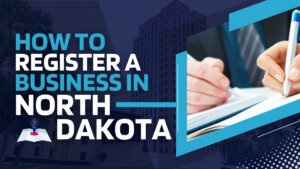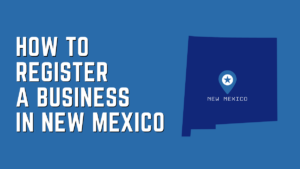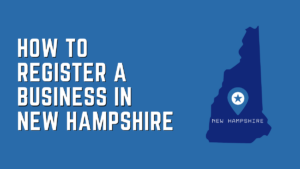Embarking on a business venture is an exciting and rewarding experience. While the registration process in South Dakota may seem overwhelming, especially for first-time entrepreneurs, the proper support can make it much more manageable.
This blog post serves as your complete guide, offering clear, step-by-step instructions for registering a business in South Dakota. Along the way, you’ll find helpful insights and tips to simplify the process, whether starting a new business or formalizing one already up and running.
Despite potential challenges, don’t worry. We’ve covered you with recommendations for excellent business registration services like Northwest Registered Agent. They’re known for their expertise and can streamline the entire process. So, let’s dive in and help you quickly register your business in South Dakota!
>> South Dakota Business Registration – Northwest Registered Agent >>
Featured Partner
Northwest Registered Agent
Start with an LLC
for $39 + state fee
Priority Support Team
24/7
Form an LLC online
Fast And Easy
How to Register Your Business in South Dakota in 7 Simple Steps
If you diligently follow these 7 steps, setting up a business in South Dakota can be a smooth and efficient process. By carefully adhering to these guidelines, you can accelerate the registration of your business based in South Dakota and quickly get it operational.
Step 1: Choose Your Business Structure
When registering a business in South Dakota, deciding which business structure to choose depends on your business’s nature and growth objectives. In our previous discussions, we covered the various options available for incorporated and unincorporated businesses in South Dakota. Now, let’s delve into these options and analyze their operations.
It’s important to note that if you opt for a structure that necessitates incorporation, like the ones mentioned below, you must register your business with the South Dakota Secretary of State.
Sole Proprietorship
In South Dakota, Sole Proprietorship is the most basic form of business organization. It treats the owner and the business as one legal entity. Consequently, the owner assumes personal liability for all debts and obligations incurred by the business.
Establishing a Sole Proprietorship in South Dakota is a straightforward process with few legal and administrative hurdles to overcome. Registering your Sole Proprietorship with the state isn’t mandatory in this state, although you might need to acquire specific permits or business licenses at the local level.
General Partnership
While registering a business in South Dakota, a General Partnership refers to a company that’s jointly owned by multiple individuals who collectively bear the responsibility for profits and losses.
Each partner assumes personal liability for the company’s debts and legal obligations. While there’s no need to formally register a General Partnership with the state in South Dakota, submitting a “South Dakota Assumed Business Name Certificate” (DBA) in the county where your business operates may be necessary.
Limited Partnership (LP)
In South Dakota, a Limited Partnership is formed by one or more general partners who oversee the operations and are personally liable without any limitations. One or more limited partners contribute funds but have restricted liability. To establish an LP in South Dakota, submit a “Certificate of Limited Partnership” to the Secretary of State in South Dakota.
Limited Liability Company (LLC)
A Limited Liability Company (LLC) is a versatile business formation that brings together the liability safeguards of a corporation with the tax advantages and ease of operation found in a partnership.
To establish an LLC in South Dakota, you must submit “Articles of Organization Limited Liability Company” to the South Dakota Secretary of State and draft an Operating Agreement that outlines how the company will be managed and owned.
Corporation
In South Dakota, there exist two varieties of Corporations: entities that provide limited liability protection and stand as distinct legal entities from their shareholders.
- C-Corporations
- S-Corporations
To form a company in South Dakota, you must submit either the “Articles of Incorporation For-Profit Corporation” or the “Articles of Incorporation Nonprofit Corporation” to the South Dakota Secretary of State, depending on the nature of your business. Corporations entail additional formalities such as drafting bylaws, issuing shares, and regularly meeting with board members and shareholders.
Selecting a business structure that aligns with your specific needs is essential, considering factors like liability protection, taxation implications, and management requirements. If you require assistance in making this decision, it’s advisable to seek guidance from a legal or business professional.
>> South Dakota Business Registration – Northwest Registered Agent >>
Step 2: Select a Unique Business Name
In South Dakota, a range of possibilities exist when naming your business. You can officially register a name for your legal entity, obtain a trademark, or register one legal name while operating under another. The specific regulations surrounding business naming can differ from state to state, so it’s crucial to familiarize yourself with South Dakota’s requirements.
Much like the process of incorporating your business, the approach you choose for naming your entity in South Dakota will depend on its unique circumstances and needs.
While it may be wise to pursue all three avenues to secure exclusivity for your chosen name, you also have the choice to opt for just one method. Although not obligatory, it’s generally recommended that you maintain consistency across all registration methods by utilizing the same name.
Now let us delve deeper into each of the available options for naming in South Dakota.
Legal Entity Name
Businesses must register a legal entity name to be recognized by the state of South Dakota. This serves as the company’s official identification and prevents potential duplication by other businesses.
South Dakota has specific guidelines regarding company suffixes (such as LLC, LP, or Corp), and the name must accurately represent the registered business type. To ensure that your chosen name is available, you can use the database provided by the South Dakota Secretary of State for verification purposes.
Trademark
Businesses can obtain Intellectual Property protection for their name or logo through a trademark. To ensure that the desired name or logo isn’t already registered, it’s essential to scour the USPTO database.
Once successfully registered, a trademark provides exclusive rights to the name or logo, prohibiting others from using similar identifiers for comparable goods or services throughout the country. Nonetheless, it should be noted that acquiring a trademark doesn’t automatically grant universal usage rights for the designated name or logo in all situations.
Operating Under a Different Name (DBA)
In South Dakota, there’s a possibility to officially register your business using one name while operating under a different name, known as a Doing Business As (DBA) name. To establish a DBA, submit an Assumed Business Name Certificate to the county clerk’s office in the specific county where your business is situated. While federal trademark laws apply to these names, a DBA doesn’t need to be unique at the state level.
By comprehending and considering these naming alternatives, you can effectively enroll your business name in South Dakota while safeguarding your brand identity.
>> South Dakota Business Registration – Northwest Registered Agent >>
Step 3: Consider Taxes and Other Costs in South Dakota
South Dakota LLCs are subject to a variety of taxes, including:
Franchise Tax: South Dakota imposes a flat franchise tax of $50, payable on the LLC’s formation anniversary. The revenue generated from this tax supports various state programs, including education and transportation.
Sales Tax: South Dakota enforces a 4.5% statewide sales tax on most goods and services within the state. However, certain items, like food and medicine, are exempt from this tax.
Property Tax: South Dakota property taxes are determined by local taxing authorities and depend on the property’s assessed value. The assessed value typically aligns with the property’s purchase price, although it may also be based on the fair market value.
Income Tax: South Dakota LLCs aren’t subject to state-level income tax. However, individual LLC members may be liable for income tax on their respective shares of the LLC’s profits. The state’s individual income tax rates are progressive, ranging from 1% to 10%.
Besides these taxes, South Dakota LLCs may also have to pay federal taxes. The types of taxes an LLC must pay will vary based on the LLC’s activities and its members’ tax status. If you’re considering establishing a South Dakota LLC, it would be advisable to seek guidance from a tax advisor to determine the specific taxes that your LLC will be required to pay.
South Dakota entrepreneurs can use online services like Northwest Registered Agent to simplify the registration process. Northwest Registered Agent provides a wide range of solutions that assist business owners with registering their ventures in South Dakota, such as filing documents with the Secretary of State, obtaining an Employer Identification Number (EIN), and creating an operating agreement.
Additionally, they offer ongoing support for compliance to ensure businesses maintain good standing with the state.
>> Register Your Business With Northwest Registered Agent >>
Step 4: Register and Acquire Licenses and Permits in South Dakota
To meet the demands of legal obligations, seeking licenses and permits is imperative when embarking on a business venture. The crucial aspects encompass registrations and authorizations that must be obtained.
Tax Registration: To sell goods in South Dakota, you must register for sales tax collection with the Department of Revenue (DOR). The South Dakota Tax Application website, officially managed by DOR, offers a convenient online registration process.
Employer Identification Number (EIN): Securing a federal Employer Identification Number (EIN) from the IRS is essential if your business employs staff or operates with separate tax liability. Even when not explicitly mandated, obtaining an EIN can prove advantageous for various business needs.
Financial institutions often require an EIN to establish a business account, and many business partners may request it for payment processing. The application for an EIN can be effortlessly completed online, with no filing fees involved.
Regulatory Licenses and Permits: These licenses and permits encompass many areas, including health and safety, environmental compliance, construction, and industry-specific services.
The Governor’s Office of Economic Development (GOED) offers a downloadable document detailing licenses issued by various state agencies such as Agriculture, Environment and Natural Resources, Health, and Labor & Regulation. The South Dakota Tax Application is your go-to resource for applying for important state business licenses associated with taxation.
It’s also advisable to visit the websites of the municipalities or counties where your business operates to inquire about any local licensing and permitting requirements.
Professional and Occupational Licenses: These licenses pertain to individuals in various professions and occupations. The South Dakota Department of Labor and Regulation website hosts a section dedicated to Occupational Licensing Agencies, listing multiple state agencies and boards responsible for regulating different professions and occupations.
Similarly, the South Dakota Boards and Commissions Portal provides a searchable directory of licensing agencies and boards. It’s recommended to consult these resources to identify and apply for specific professional or occupational licenses relevant to your business activities.
>> Register Your Business With Northwest Registered Agent >>
Step 5: Open a Bank Account for Your Business in South Dakota
Once you have acquired your Employer Identification Number (EIN), it becomes essential to establish a business bank account in the state of South Dakota.
To comply with the state’s regulations regarding Limited Liability Partnerships (LLPs), Limited Liability Companies (LLCs), and corporations, open a dedicated business bank account. However, sole proprietors and unincorporated partnerships aren’t legally required to maintain separate personal and business accounts.
To begin the process, you should visit a local bank in South Dakota and complete the necessary paperwork. It’s advisable to thoroughly research different banks and compare their rates and benefits before choosing a specific provider.
Even if you currently operate as a sole proprietor or unincorporated partnership, it’s highly recommended that you have a designated business bank account in South Dakota. This precautionary step ensures clear financial separation and can help avoid potential complications if you decide to incorporate your business at some point in the future.
>> Consider Northwest Registered Agent >>
Step 6: Protect Your Intellectual Property in South Dakota
When registering a business in South Dakota, it’s crucial to take appropriate measures to safeguard your valuable Intellectual Property (IP), depending on the nature of your company.
For example, most businesses strive to protect their name and logo from being replicated and utilized by others. If your business involves the sale of goods or the provision of services, you may also want to secure the design of your products or any creative works that you produce, such as written content, designs, or music.
South Dakota provides several avenues for accomplishing this goal, and it’s advantageous to promptly initiate the necessary applications to prevent unauthorized usage of your IP.
Trademark
In the state of South Dakota, a trademark refers to an identifiable symbol, phrase, word, or design that sets apart a product or service from similar offerings available in the market.
To gain legal protection, trademarks must be officially registered with the United States Patent and Trademark Office (USPTO). The registration process typically takes approximately four to six months to complete. Once successfully registered, the trademark is granted nationwide protection and allows for legal action against any unauthorized usage.
Companies operating in South Dakota can safeguard their trademarks by registering them with the USPTO. This not only ensures the security of their brand image and reputation but also provides them with legal remedies in case of any unauthorized use of their trademark.
Copyright
South Dakota’s copyright law safeguards original works of authorship, such as literature, plays, music, art, and various intellectual creations. This encompasses various materials, including written content, software programs, web content, movies, audio recordings, images, and different forms of creative expression.
When you produce a new work in South Dakota, copyright protection is automatically granted to you as the creator. As the proprietor of exclusive rights to distribute, copy, reproduce, and sell Intellectual Property, you have the legal authority to govern the utilization of your work.
However, enrolling your copyright with the U.S. Copyright Office in South Dakota can offer a legal shield and serve as proof of ownership. Copyright registration helps protect your work against infringement and provides a means to enforce your rights through the judicial system if necessary.
Patent
If you come up with a fresh product or machinery in South Dakota, it’s essential to acquire a patent. Obtaining a patent gives the holder exclusive rights, which means that others are prohibited from manufacturing, selling, or importing the patented item for a specified period.
Applying for a patent can be intricate and may take up to five years to complete. Therefore, it’s advisable to commence the application early if you have an innovative invention that requires protection. The United States Patent and Trademark Office (USPTO) receives and reviews patent applications.
You can protect your brand, products, and creations by safeguarding your Intellectual Property in South Dakota. This ensures that your business maintains its competitive advantage and continues to thrive in today’s market.
>> Visit Northwest Registered Agent >>
Step 7: Set Up Your Payment Infrastructure in South Dakota
To guarantee that your business in South Dakota is fully prepared to serve customers immediately upon registration, it’s crucial to establish a smooth and hassle-free system for accepting payments.
Several services are available for processing payments, all of which provide user-friendly interfaces and easy integration with your website or point-of-sale (POS) system. Square, Stripe, and PayPal are popular options that offer flexible and customizable systems designed to align with your business’s specific goals.
These payment processors enable you to accept various methods of payment, including credit and debit cards, ACH transfers, and digital wallets such as Apple Pay and Google Pay, among others. By choosing a trustworthy payment processing service, you can offer your customers the convenience of paying with their preferred methods through a secure platform. This ensures that all parties involved have a seamless transaction experience.
When selecting a payment processor, it’s essential to ensure sales tax compliance in South Dakota. This involves acquiring a Sales Tax License from the South Dakota Department of Revenue, which grants you the ability to collect sales tax on taxable products and services.
Once your payment system is set up, your business based in South Dakota will be fully prepared to serve customers and generate revenue securely and efficiently.
By following these guidelines, you can establish a legally compliant enterprise in South Dakota.
>> Register Your Business With Northwest Registered Agent >>
Top 6 Business Registration Services for South Dakota Entrepreneurs
How to register a business in South Dakota as a business registration service. Entrepreneurs and small business owners in South Dakota have various options for registering their businesses in South Dakota.
There are several business registration South Dakota services that provide comprehensive solutions to assist with establishment and compliance with state and federal regulations. Below are some of the best business registration services available to entrepreneurs in South Dakota:

Northwest Registered Agent is an internet-based service for registering businesses in South Dakota that focuses on providing the best registered agent services, managing compliance, and filing documents. Renowned for their high standards and outstanding customer service, they offer customized assistance to assist South Dakota enterprises in adhering to both state and federal regulations.
Northwest Registered Agent delivers a range of business establishment options for Limited Liability Companies (LLCs), corporations, and nonprofit organizations.
>> South Dakota Business Registration – Northwest Registered Agent >>

Tailor Brands is a digital platform for branding and design that aids businesses in developing a polished and unified brand identity. They provide various branding options such as logo design, business card design, and social media branding.
Moreover, Tailor Brands offers various design tools and resources that enable businesses to personalize their branded materials. Although not specializing in conventional business registration in South Dakota services, Tailor Brands supports entrepreneurs in South Dakota by assisting them in creating an attractive brand image to entice customers.
>> Register Your Business in South Dakota With Tailor Brands >>

BusinessRocket is an innovative internet platform that provides vital services for registering a company in South Dakota. With its easy-to-use interface and knowledgeable assistance, BusinessRocket streamlines the entire procedure, starting from choosing the right business framework to submitting essential documents and obtaining relevant permits.
This platform offers personalized solutions designed to meet the unique requirements of each customer, guaranteeing effectiveness, affordability, and adherence to state regulations. By providing intuitive tools and helpful resources, BusinessRocket empowers entrepreneurs to confidently establish their businesses while leaving administrative responsibilities in capable hands.

ZenBusiness is an internet-based service that focuses on assisting individuals in registering their businesses in South Dakota, offering a range of services such as business formation, registered agent services, and annual report filing.
They provide cost-effective pricing options and comprehensive packages that include personalized assistance, and valuable resources to help businesses maintain compliance with regulations and achieve growth. With a website designed for simplicity and efficiency, ZenBusiness simplifies the process of business registration in South Dakota for entrepreneurs in South Dakota.
>> Register Your Business in South Dakota With ZenBusiness >>

Swyft Filings has gained popularity as a business registration service due to its efficient and seamless process for forming businesses, which includes LLC services, incorporation, and compliance.
They offer customized help and valuable resources to assist South Dakota businesses in navigating the registration procedure while ensuring adherence to state and federal regulations. With their user-friendly website and affordable pricing options, Swyft Filings makes the business registration South Dakota process convenient for entrepreneurs.
>> Register Your Business in South Dakota With Swyft Filings >>

Bizee is a convenient and cost-effective online service for registering businesses in South Dakota. They provide a range of packages that include registered agent services, compliance management, and document filing. With a user-friendly platform, Bizee makes the process of registering a business in South Dakota easy and stress-free. They offer ongoing assistance and valuable resources to help businesses stay compliant with regulations and achieve growth.
Each of these business registration services offers unique advantages to assist entrepreneurs in South Dakota with their registration needs. By conducting thorough research and comparing these services, entrepreneurs can identify the most suitable option that will streamline the registration process while ensuring efficiency and effectiveness.
Business Registration Laws in South Dakota
Registering a business in South Dakota entails complying with various legal requirements and following a series of steps. Here are the essential elements of the business registration South Dakota laws in South Dakota:
- Business Entity Types: South Dakota offers various business entity types, including Sole Proprietorship, Partnerships, LLCs, and Corporations, each with distinct registration requirements and legal implications.
- Choosing a Business Name: When registering a business in South Dakota, you must select a unique name not already in use by another registered business, which you can verify on the South Dakota Secretary of State’s website.
- Registering a Business Name: If your business will operate under a name different from your legal name (for Sole Proprietorship) or owners’ names (for partnerships), you’ll need to register a “Doing Business As” (DBA) name with the South Dakota Secretary of State.
- Registering a Business Entity: To establish a partnership, LLC, or corporation in South Dakota, submit the appropriate formation documents to the South Dakota Secretary of State. These documents typically include articles of organization (for LLCs) or articles of incorporation (for corporations).
- South Dakota Secretary of State: This office oversees business registrations and maintains related records. Visit their official website for additional information, forms, and resources.
- Employer Identification Number (EIN): In most cases, South Dakota businesses must obtain an Employer Identification Number (EIN) from the IRS for tax purposes, especially if hiring employees, opening a business bank account, or filing specific taxes.
- Business Licenses and Permits: Depending on your business’s nature, you may need licenses, permits, or registrations from state agencies, local governments, or industry-specific regulatory bodies. Research the relevant requirements for your business to ensure compliance.
For more detailed information, it’s advisable to consult with a qualified attorney or contact the South Dakota Secretary of State’s office for guidance.
>> Register Your Business With Northwest Registered Agent >>
Alternative Business Registration Methods in South Dakota
The main way to register a business in South Dakota is by using the Secretary of State’s office. Nonetheless, there are also other options for business registration in South Dakota. Here are a few alternatives:
Online Registration
The office of the South Dakota Secretary of State offers an internet-based registration system known as “SOSDirect.” Through this platform, you can conveniently register your business in South Dakota online by electronically submitting the required forms and information.
Mail Registration
Instead, you can register your business in South Dakota through the mail. To do so, you must first access the suitable registration forms from the Secretary of State’s website in South Dakota. Once downloaded, fill out these forms and send them, along with the necessary fees, to the specified address.
In-Person Registration
If you’re more inclined towards direct communication, you can personally go to the South Dakota Secretary of State’s office in Pierre, the state capital, to officially register your business in South Dakota. The personnel at this office will be able to assist you with all the required documentation and offer guidance throughout the registration procedure.
Business Assistance Organizations
South Dakota boasts a range of organizations dedicated to assisting businesses, making the registration process more manageable. The Small Business Development Center (SBDC) and SCORE are two such organizations that offer guidance and resources tailored to entrepreneurs. While these entities may not directly handle the registration process itself, they do provide valuable support and information.
It’s important to remember that the specific requirements and procedures for registration can vary depending on the type of business structure you opt for, such as Sole Proprietorship, Partnership, LLC, or Corporation.
As a result, it’s highly advisable to visit the official website of South Dakota’s Secretary of State or contact their office directly for in-depth information and guidance regarding your particular business’ registration process.
>> Try Northwest Registered Agent Today! >>
Benefits of Registering Your Business in South Dakota
When you register your business in South Dakota, you gain access to numerous advantages that can greatly contribute to the growth and success of your company. Here are a few benefits of registering your business in South Dakota:
- Favorable Tax Climate: South Dakota offers a tax environment that benefits businesses. The state doesn’t impose corporate income tax, personal income tax, or personal property tax. There are no state-level taxes on capital gains, dividends, or interest. This advantageous tax landscape can result in substantial cost reductions for your business.
- Low Operating Costs: South Dakota stands out for its comparatively economical operational expenses when compared to numerous other states. The affordability of the cost of living directly translates into reduced costs for your business, encompassing employee salaries, office rentals, utility bills, and various other operational expenditures.
- Minimal Regulatory Burden: South Dakota boasts a streamlined and favorable regulatory environment for businesses. The state provides a straightforward and effective system for registering and licensing companies. With minimal red tape and fewer bureaucratic obstacles, registering and running a business in South Dakota becomes much more convenient.
- Accessible Government Support: South Dakota’s government is dedicated to promoting the growth and advancement of businesses. The state offers a range of resources and programs designed to aid businesses, such as grants, loans, workforce training initiatives, and technical support. These invaluable resources are available for startups or established companies seeking expansion opportunities.
- Strong Workforce: South Dakota is home to a highly skilled and educated workforce. The state prides itself on its strong work ethic, with employees renowned for their dedication and reliability. Access to such a talented labor pool can greatly benefit your business, as it ensures the availability of skilled workers who can make valuable contributions to its success.
- Strategic Location: With its advantageous position in the heart of America, South Dakota is an ideal destination for companies involved in logistics, transportation, or distribution. The state boasts a top-notch transportation system that consists of interstates, rail networks, and airports. This well-developed infrastructure ensures smooth and efficient movement of goods and services throughout the nation.
- Quality of Life: South Dakota provides an exceptional standard of living thanks to its stunning landscapes, abundant outdoor activities, and tight-knit communities. These factors can be attractive to workers and potentially enhance employee contentment and loyalty.
- Strong Economy: South Dakota boasts a strong and varied economy, encompassing industries such as farming, production, healthcare, travel, finance, and technology. Despite economic slumps, the state’s economy has proven to be steadfast and offers a secure setting for businesses to flourish.
It’s crucial to acknowledge that although South Dakota presents numerous benefits for businesses, the advantages may differ based on the nature and sector of your business. It’s recommended to seek guidance from a business lawyer or an expert well-versed in South Dakota’s business landscape to evaluate the distinct perks and obligations applicable to your specific enterprise.
>> Try Northwest Registered Agent Today! >>
Is Business Registration Required in South Dakota? Find Out Here
Indeed, in South Dakota, most businesses are required to go through the registration process with the state. The specific requirements for registration may vary depending on factors such as the type of business entity, industry involvement, and other relevant considerations.
Some common steps for registration include obtaining a Sales and Use Tax Permit in South Dakota, registering an LLC or Corporation in South Dakota, and obtaining necessary professional licenses or permits for specific industries.
It’s crucial to thoroughly research and understand the particular requirements that apply to your business. You can avoid potential legal and financial consequences by ensuring complete compliance with all registration obligations.
>> Get Started With Northwest Registered Agent >>
How to Register Your Business in South Dakota – Frequently Asked Questions
Bottom Line on How to Register Your Business in South Dakota
Understanding South Dakota’s business registration requirements is crucial for a strong start. While it may seem daunting at first, following the right steps ensures compliance and sets your business up for success.
Start by picking a fitting business name and legal structure that aligns with the Secretary of State’s guidelines. Complete the necessary paperwork and secure licenses or permits specific to your industry and location. A service like Northwest Registered Agent can help simplify these steps and ensure compliance every step of the way.
Registering your business now properly will help you avoid future legal or financial issues, setting the stage for success. This solid foundation allows you to focus on growing your enterprise with confidence.
>> Get Started With Northwest Registered Agent >>
Related Articles
- How to Start LLC in South Dakota
- How to File a DBA in South Dakota
- Cost to Form an LLC in South Dakota
Learn How To Register a Business by State
Explore our interactive U.S. map to cultivate your knowledge on registering a business by exploring the unique processes and requirements specific to each state.
 Sections of this topic
Sections of this topic

















